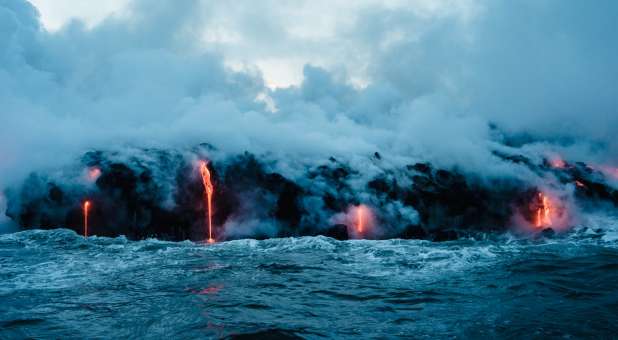Imagine you woke up one day and heard the sound of all kinds of animals. You looked outside and saw hundreds of animals marching two by two onto a really large boat. Then imagine that for many years, you had been told that only those people who got on that huge boat would survive a coming rainstorm.
Now stop for a minute and think that up until this very day, not only had it had never rained before, but animals had never gathered together and walked onto a large boat before. How much influence would the fact that animals were gathering have on your belief that the rain was coming?
The reason I pose this question is because just as the people of Noah’s day saw Noah building the ark and preaching about the coming storm, then saw those animals gathering together on the ark, we are watching the fulfillment of Bible prophecy taking place before our eyes. One only has to take a glimpse into the Bible to find the many prophecies of the end times. The difference between Noah’s day and ours is that in Noah’s day, they had hundreds of years of prophetic words or warnings, while we have had thousands of years.
We have all heard the prophecies, wars and rumors of wars, tsunamis and earthquakes, children rebelling against parents, unnatural affections and so many other warnings about how society will be when the end of days arrives. Not only do we see all of those prophecies coming to pass, but we have also seen the prophesied restoration of the nation Israel as she was reborn in a day. Yet it seems that very few people are preparing to “enter the ark,” so to speak. I have never been a preacher of doom and gloom, and I have never been one to attempt to frighten people into faith with fire and brimstone messages. I have no intention of doing so in this article.
Instead, I would encourage everyone reading this to join me in following Noah’s example. As we read Genesis, we find Noah doing two things. First, Noah did what G-D told him to do: He built an ark. Noah didn’t simply cower in fear and tell everyone the sky was falling. Noah got busy working and completed everything G-D called him to do, all the while waiting day after day for the rain to start. Noah built an ark to ride above the rain and save everyone who would enter in, at a time when no one, even Noah, had ever seen rain. Second, Noah preached righteousness. He didn’t preach fear. He didn’t preach politics. He didn’t preach hate or division. He preached righteousness. This is not to say that we cannot be righteous in our politics, and it also doesn’t mean we should compromise our faith by not walking holy (separate from the world). What it means is that we, like Noah, should preach a message that reminds people that all righteousness comes from G-D through the once-for-all sacrifice of Yeshua (Jesus) on the cross.
The more prophecy we see coming to pass, the more committed to following Noah’s example we should become. The more we should work to complete the calling that G-D has placed on our lives, and the more we should preach a message that we can be made righteous through Messiah Yeshua. Everything we do and everything we say should be devoted to do one or both of those two things. That is why we read in Jacob (James) 2:18, “Show me your faith without your works, and I will show you faith by my works.” {eoa}
Eric Tokajer is author of With Me in Paradise, Transient Singularity, OY! How Did I Get Here?: Thirty-One Things I Wish Someone Had Told Me Before Entering Ministry, #ManWisdom: With Eric Tokajer and Jesus is to Christianity as Pasta is to Italians.











































